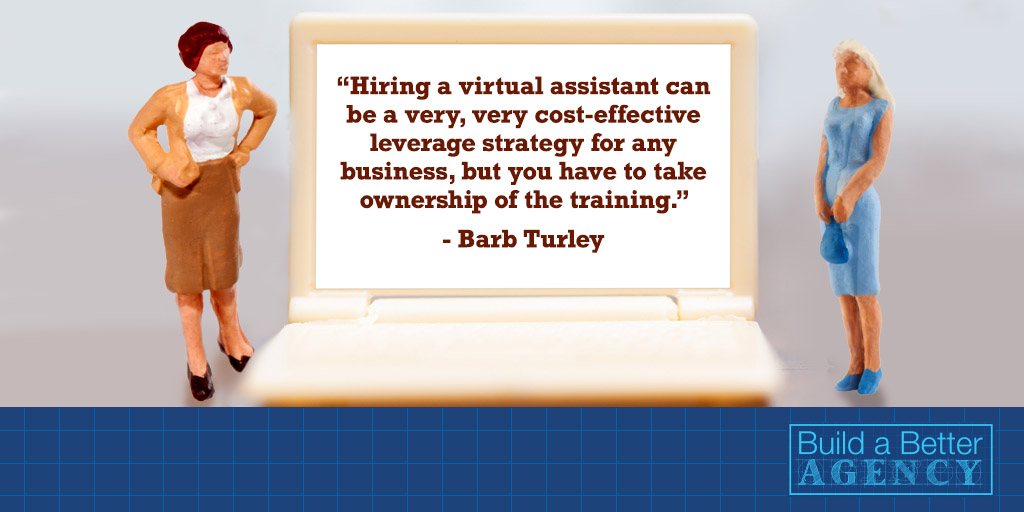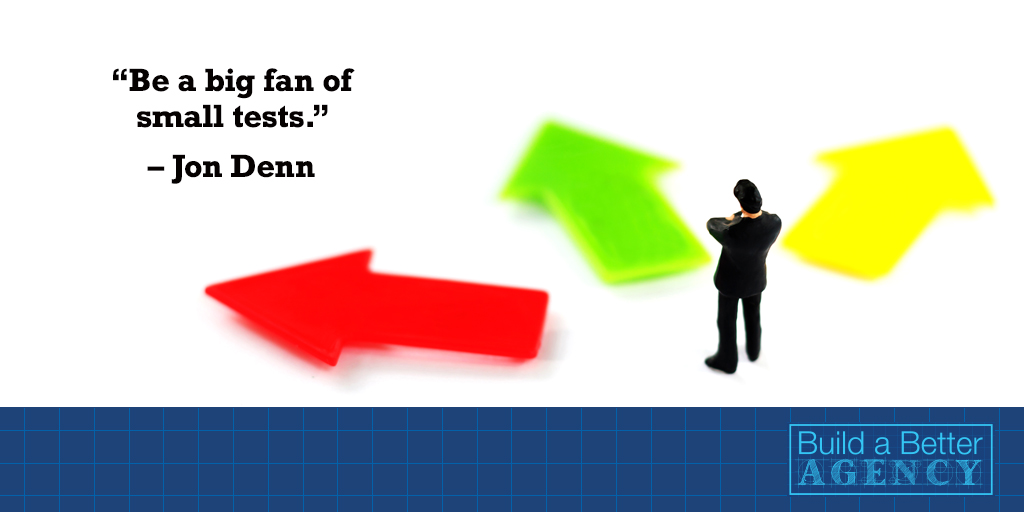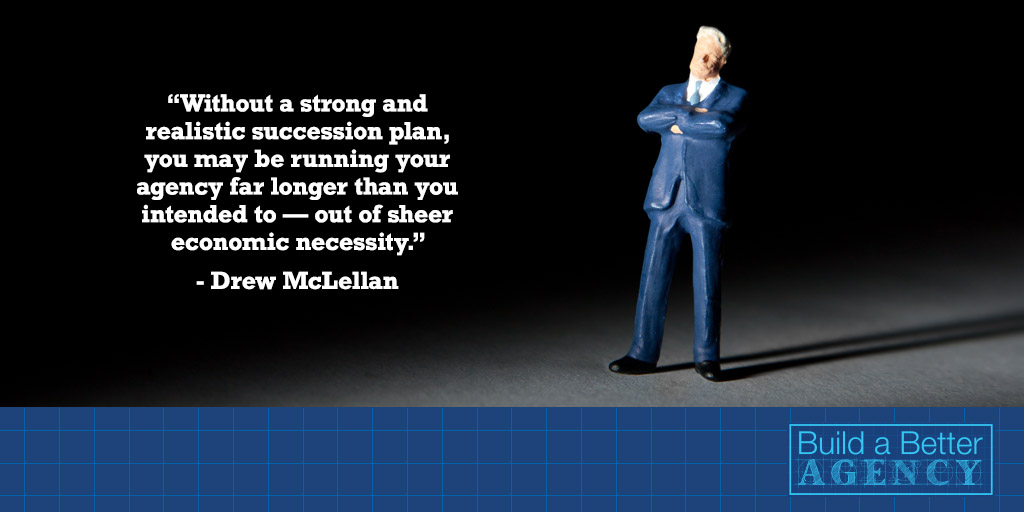Maybe things run smooth as silk at your agency. I know that’s what I hope for in mine. It’s more likely to happen on a Saturday or Sunday! One of the ways that we all try to evoke that sense of efficiency and calm is by creating processes that systemize and manage work flow.
Not that many agencies do this (if anything, we are system adverse, not system advocates) you can take it too far. There’s a fine line between creativity and process. But if things can run more smoothly and free you and your team up to do more interesting things like coming up with bigger, more valuable solutions for your clients, then the payoff is worth the challenge of getting it in place.
If you remember my solocast where we talked about being a wonder bread factory versus an artesian baker, that’s part of what I talked about. How much uniformity and what kinds of boundaries do you want to put around your business?
There’s no right or wrong answer – just a right or wrong answer for you.
That’s what I wanted to talk to Michael Koral about, because he’s lived it. Michael started out with a more traditional agency that was primarily a web dev shop with some ancillary services. Their work was very labor and people-intensive. He and his partners decided to make an interesting pivot. They decided to leverage the power of artificial intelligence, data and numbers around advertising on Facebook and Instagram – to get people the best results possible and now they run a very different kind of agency.
Michael is an operations guy, with some fantastic ideas on process and automation –he naturally knows how to get more done, more simply. His company, Needls, helps businesses advertise effectively on Facebook and Instagram, so I am going to pick his brain about what they’ve learned in that arena as well.

What You Will Learn in This Episode:
- How the right processes and automation can help you scale your business
- There are lots of right ways to do things
- Why taking time to document and develop processes makes for a better agency
- What to know about Facebook advertising post-Cambridge Analytica
- Click vs. Reach – what you should optimize for
- Why you NEED to optimize for mobile
- Best ways to capture attention with video
- Between Facebook and Instagram, where people are watching longer video content
- Why you should put closed captioning on videos
- How and why to track your ads
Ways to Contact Michael Koral:
- Website: http://www.needls.com/
- Instagram: https://www.linkedin.com/in/michael-koral-01bb159/
Before the ’08 recession, most agency owners couldn’t fathom the idea of remote employees, let alone working with a virtual assistant they’d likely never meet. But with sites like UpWork and elance teaching us that sometimes it makes good business sense to source work from with someone we’ve never met, the concept of working with virtual assistants has grown in popularity.
In my world, on both the agency and AMI side – we’ve found it to be a very effective way to get a volume of work handled effectively and efficiently.
This is definitely an ongoing topic of conversation with agency owners. How do we keep up with the needs and demands of clients in a cost-effective way, without putting quality or the client relationship at risk. For any agencies, virtual assistants are one of the answers to that question.
On episode #172 of Build a Better Agency, I talk with Barbara Turley of The Virtual Hub. She recognized the need for high-quality VAs and decided to create a business around that need.
We discuss the many upsides of hiring one or more VAs – like freeing up your most scarce resource: time. But we also discuss some of the pitfalls to avoid, especially around rigorous training and expectations on both the VA and the agency side. I found it to be a fascinating conversation and I hope it’s incredibly useful for you.
Barbara is the founder and CEO of The Virtual Hub – a business she started by accident that exploded in the space of 12 months to become one of the leading companies that recruits, trains, and manages virtual assistants in the digital marketing and social media space for businesses who need to free up time and energy so they can go to the next level.

What You Will Learn in this Episode:
- How to set expectations for a virtual assistant – and your agency
- Understanding the difference between hiring within your national borders and offshoring
- The right questions to ask about prior training
- How to share processes around tasks and check in
- Why you should consider a virtual assistant a permanent and integral part of your team
- How to integrate a virtual assistant into your team
- How to choose the right virtual assistant for the right tasks
- Your role as an agency owner as it relates to virtual assistants
- Which unwanted tasks you can hand off to a virtual assistant
How to Contact Barb Turley:
For most people, especially the creative types that tend to inhabit the agency world, time management is a hodgepodge of post-it notes, paper to-do lists, and several online tools – all used haphazardly and resulting in missed deadlines, meetings and a sense of being overwhelmed.
I know for me time management has been a series of constant improvements. While I am 95% happy with the system I have today, I always wonder if I could get little more efficient. I remember when I was first starting out in agency life and had no sense of when to walk away from the to-do list. I felt this sense of obligation to stay until the work was done. My problem, everyone’s problem: the work is never done.
So, being productive when you need to be is an agency imperative. That’s why I was looking forward to talking to Jon Denn. Jon is a creative person and has also done a ton of neuroscience research to understand that—guess what—one size does not fit all when it comes to time management tools and strategies.
In this episode, I ask Jon to share insights from his research and provide some perspective. He is a huge proponent of testing or experimentation. So, you can take his basic framework—3 hours of your day broken into chunks that correspond basically with how much mental energy they require—and test it out. He suggests 90 minutes for deep thinking, but quickly acknowledges that 45 or 60 minutes might work best for you. What time of the day are you at your peak? Use that time for your deep thought projects.
Here’s some good news – there’s are reasons why we work at odd hours. I don’t adhere to a strict 9-5 schedule and neither do most agency owners I know. Jon’s time management framework is at once freeing and very focusing.
Jon is the Chief Thinking Officer of Drumbeat Productivity. His background includes serving as a Hotel Chain CEO. Jon ran an adaptive leadership program for 12 years, and is a publisher, entrepreneur, and has been a Vistage CEO Coach and Group Chair since 2014.

What You Will Learn in this Episode:
- How to do small tests to understand when and where your most productive time can be focused
- How to take control the parts of your schedule that matter most
- The difference between doing meetings and idea meetings, and how to manage both
- Why dividing tasks into groups based on the mental energy they require is much more efficient than the traditional “buckets” of work, home, etc.
- How dividing time into 90-minute (deep thought), 60-minute (complex communication), and 30-minute (quick to-do) blocks is so efficient
- Why you shouldn’t force a fit with time management tools
- How to find the time management tools and processes that work for you
- Setting up office-wide “don’t distract me” hours, and then other times to just be social together
Ways to contact Jon Denn:
- Website: drumbeatproductivity.com
- LinkedIn: https://www.linkedin.com/in/jon-denn-20a5805/
It’s something we all dream about – retirement. Selling our agency for big bucks so we can sip Mai Tai’s on the beach. The agency’s name and reputation carrying on with another generation. Or just locking the door and calling it done. All are worthy ends for your shop.
Whatever your dream is – I know that it’s very personal and important to you and I want you to achieve it. But no matter which end game appeals to you, it requires some serious planning (up to a decade before depending on your exit strategy) before you’re ready to walk out the door for the last time. And you’ll need to run your agency differently in terms of how you handle the money and make other key decisions.
Bottom line – the end game is not something you can leave until the end. You’ll need to give it serious thought and as Stephen Covey has long implored us, “begin with the end in mind.”
It starts with some soul searching in terms of how, ideally, you want it to play out and what is possible or at least plausible. Once you’ve figured that out – you need to put your plan into action, so everything is in place when you’re transitioning out and the agency can survive that transition.
Over and over I see agency owners who started too late or didn’t do the homework to build out the details and specificity they needed in their succession plan. That’s the perfect way to limit your options or force you to stick around longer than you want.
I don’t want that to happen to you. In this episode, we’ll take a close look at all of your options and the criteria for each. Hopefully, that will set you up to create a win for you, for your employees, and for potential buyers of your thriving agency.

What You Will Learn in This Episode:
- Building your wealth while you still own your agency
- Succession options for agency owners
- Factors that affect the valuation of your agency when you go to sell
- Why being a generalist decreases the value of your agency
- The value of setting up sources of residual income outside your agency work
- Different options if you want to sell your agency
- How to have candid conversations with potential buyers of your agency
- Why gifting shares of your agency to employees is a bad idea
- Baking succession planning into partnership agreements
- Why you need to go slow when considering merging with another agency
Drew McLellan is the CEO at Agency Management Institute. He has also owned and operated his own agency since 1995 and is still actively running the agency today. Drew’s unique vantage point as being both an agency owner and working with 250+ small- to mid-size agencies throughout the year gives him a unique perspective on running an agency today.
AMI works with agency owners by:
- Leading agency owner peer groups
- Offering workshops for owners and their leadership teams
- Offering AE Bootcamps
- Conducting individual agency owner coaching
- Doing on-site consulting
- Offering online courses in agency new business and account service
Because he works with those 250+ agencies every year — Drew has the unique opportunity to see the patterns and the habits (both good and bad) that happen over and over again. He has also written two books and been featured in The New York Times, Forbes, Entrepreneur Magazine, and Fortune Small Business. The Wall Street Journal called his blog “One of 10 blogs every entrepreneur should read.”
Ways to contact Drew McLellan:
- Email: drew@agencymanagementinstitute.com
- LinkedIn: www.linkedin.com/in/drewmclellan